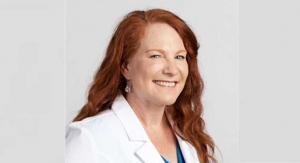Erik Goldman, Holistic Primary Care03.02.15
For the most part, successful practitioner-focused companies have built their brands almost exclusively by selling individual healthcare professionals on the quality and efficacy of their products, and then facilitating the ability of those professionals to recommend or, ideally, dispense the products to their patients.
It’s been a successful approach to be sure: the practitioner channel has grown at a brisk 7-9% annually for most of the last decade, outpacing retail growth rates, with aggregate U.S. revenue hitting approximately $3 billion last year.
According to practitioner surveys conducted by my company, Holistic Primary Care, the vast majority of community-based primary care doctors (upward of 90%) are now recommending some supplements—most making general recommendations for multivitamins, probiotics and omega-3s. Depending on their practice settings, roughly 30% are dispensing (selling) some products.
That’s all good news. But sales to and through individual clinicians are hard-won, and growth by this road is slow and incremental. The mainstay practitioner segments—naturopaths, chiropractors, holistic MDs—are pretty well saturated.
The next phase of the practitioner channel’s evolution could very well depend on the “big system sell”—that is sales to managed care plans, hospital-owned clinics and other large institutions. There are signs to suggest this may soon become possible, and while success on that front will also be hard-won and require significant investment, it holds huge potential for rapid and exponential growth.
The big question is: will the industry be ready to capitalize on the new openings?
From Sideshow to Main Stage
There’s clearly been a shift in medical thinking toward acceptance of nutritional interventions. However, by and large, pharmaceuticals remain the primary tools of the trade for most mainstream clinicians. Consider that total consumer spending on supplements in all channels—a cool $31 billion annually—represents just 10% of the nation’s total spend on pharmaceuticals.
Supplements have been a very small sideshow in the healthcare circus. This is, in part, because the Dietary Supplement Health and Education Act (DSHEA) prohibits companies from using claims language that mainstream healthcare people recognize. Plus, supplements have not traditionally been covered by insurance. Add in the occasional negative studies, and the all-too-common reports of poor quality control, ingredient substitutions and mislabeling, and it’s easy to understand how and why our industry has remained at the margins of mainstream healthcare.
This is a shame, given the preventive—and even therapeutic potential—of good quality nutraceuticals used judiciously and guided by state-of-the-art functional medicine thinking.
What if ingredients like probiotics, omega-3 fatty acids, folic acid and good quality multivitamins were routinely covered by health insurance plans? What if administrators of the large managed care plans and hospital networks encouraged physicians and nurses to include carefully vetted, scientifically sound supplements in routine patient care? What if it were a matter of routine for physicians to recommend—or even supply—CoQ10 to every patient prescribed a statin?
Michael D. Levin, founder of Health Business Strategies, LLC, an Oregon-based industry consultancy, believes nutrition-based interventions hold tremendous potential for reducing the burden of illness and the aggregate costs of things like irritable bowel syndrome, metabolic syndrome, cardiovascular disease, autoimmune disorders and chronic inflammatory conditions.
He also contends that those “what ifs” aren’t so hypothetical anymore. Lately, there are promising signs that the light may be slowly dawning on administrators at major health plans that nutritional strategies—including supplementation—could help cure what’s ailing the nation’s overburdened and stupidly expensive healthcare systems.
Mr. Levin, who will be a featured speaker at the upcoming Practitioner Channel Forum, believes the ever-stronger cost pressures from healthcare reform, the fierce competition between large systems and the public’s demand for alternatives are forcing healthcare administrators to wake up and consider options they once ignored.
In some cases, direct personal experience is the catalyst. Arguably, the most outspoken recent “convert” is Mark Bertolini, CEO of Aetna, who has become an active advocate for naturopathic medicine after experiencing it for himself.
A decade ago, Mr. Bertolini was in a skiing accident that left him disabled, drugged and unable to work. Though he diligently obeyed his conventional physicians, he found no relief from his debilitating neuropathy. He ended up on seven different drugs, which left him still in pain, but unable to think clearly.
Frustrated with conventional care, he began exploring “alternative” medicine, and ultimately found relief through the comprehensive care of Doni Wilson, ND, a NYC-based naturopath.
Since his recovery, Mr. Bertolini has steadily pushed Aetna toward a wider embrace of alternatives for its own employees and for the millions covered by Aetna policies.
“This is not ‘voodoo medicine,’ as a lot of allopaths and people in the medical community call it. It is actually very important in getting people productive and back to work. What if we employed this in the workplace?” Mr. Bertolini said in a video interview with the Huffington Post.
Cleveland Clinic Gets Functional
Across the globe, “Cleveland Clinic” is synonymous with what’s best about American medicine: state-of-the-art diagnostics; fast and effective high-tech interventions; top-notch clinicians (paid on salary to minimize incentives to over-treat); a near-religious commitment to outcomes measures; and a brilliant and visionary chief executive (Dr. Delos “Toby” Cosgrove).
There are reasons why “one-percenters” from all over the world fly to Cleveland for their medical care.
Last fall, Cleveland Clinic made waves when it opened a Functional Medicine Center based on the clinical principles developed and promoted by the Institute of Functional Medicine (IFM). The new center, which opened last September, is headed by Dr. Mark Hyman, chairman of IFM’s Board of Directors, and staffed by several IFM-trained clinicians, including IFM Education Director Dr. Patrick Hanaway.
Cleveland Clinic—like a growing number of hospital systems—already had a Wellness Center (run by Dr. Oz’s compadre, Michael Roizen), as well as a Center for Integrative Medicine. What’s special about the Functional Medicine Center? Why should it matter to you?
For one, the clinicians there—MDs, nurses, RD nutritionists and health coaches—are treating people with serious chronic illnesses with natural medicine protocols.
As Senior Director Mary Curran explained when I visited the new clinic in late January, this is not about routine health and wellness, or even about prevention. The center is focused on longstanding, often debilitating disorders.
Secondly, it puts nutrition—including use of dietary supplements—at the center of the healthcare equation. Doctors at the new center are free to recommend supplements, sometimes in conjunction with drugs and sometimes as substitutes. During a patient encounter, I heard the physician tell a patient to switch from her current sleep medication to a standardized lavender extract for which data show similar efficacy but lower risk of side effects.
Thirdly, the new center will be a hub for intensive clinical research. Cleveland Clinic is already underwriting four clinical trials—on asthma, irritable bowel syndrome, migraine headache and type 2 diabetes—to test the efficacy of the functional medicine model. Ultimately, this will enable investigators to compare the clinical and economic outcomes of functional medicine against conventional care for the same disorders.
In a sense, the core principles underlying the entire nutrition industry will be put to the test at the Cleveland Clinic. You’re going to want to stay tuned.
Many hospital systems now have holistic or integrative clinics, but most are essentially window-dressing—feel-good places designed to draw younger, healthier people into the hospital’s fold, but not really delivering the full spectrum of what natural medicine has to offer.
To be sure, marketing considerations are a part of Cleveland Clinic’s game plan. Ms. Curran noted that about 25% of the 280+ patients who have sought care at the Functional Medicine Center since it opened were completely new to the Cleveland Clinic system.
I came away from my visit with the sense that the center is committed to providing true-blue, unfettered, functional medicine. It is, essentially, a test-kitchen for what a new model of medicine might look like, and supplements are definitely a part of that.
Opening the Door to Fed Programs
The winds of change are also starting to blow through the corridors of federally funded healthcare.
Bill Walter, a naturopathic primary care physician in Eugene, OR, has been able to affect major change in the culture of Medicaid-funded primary care in the county and clinics where he works.
In addition to his private practice, he works for the Community Health Centers of Lane County, a federally-qualified health center. Both clinics have a significant Medicaid population—not suprising, considering that roughly 100,000 of Lane County’s 400,000 citizens qualify for Medicaid. Even though he’s working in a public clinic, he has broad support to use the range of naturopathic therapeutics for his patients while also managing any basic medications and other primary care that they might need.
Dr. Walter’s success in bringing supplements and other naturopathic therapies like lifestyle modification, spinal manipulation and herbs into Medicaid-funded primary care, depended in part on the fact there has been a glaring shortage of primary care MDs in Oregon (and in many other states).
That, plus the fact the Affordable Care Act (aka ObamaCare) includes a non-discrimination clause mandating that insurers include and refrain from discriminating against all licensed healthcare professionals. In Oregon, that includes naturopaths, meaning that insurers must include licensed NDs and NMDs as primary care doctors.
In order to care for this population, he had to work with the local Medicaid CCO (coordinated care organization) to understand what naturopathic healthcare could do. Dr. Walter, who will share his experience at the Practitioner Channel Forum, said that one of the keys is to identify serious unmet needs within the conventional system. At his clinic, chronic pain was one of these needs.
“Our local Medicaid CCO recognized that there’s this huge problem with chronic pain and opiate abuse. How could we do a better job handling this as a community? They put me as chair of that committee, and I was coordinating several dozen physicians, neurologists, acupuncturists, physical therapists. There’s a willingness among all levels of practitioners to work with anything other than opiates first, and that includes natural products. The neurologists and orthopedists are happy to consider fish oil as part of treatment. They’re willing to work with any tools they can to minimize the harm being done with opiates.”
Over the last few years, Dr. Walter has been excited about how his local Medicaid group is making nutritional supplements accessible for routine patient care: calcium, magnesium, iron, B vitamins and fish oil are now available through the local Medicaid group with no prior authorization necessary.
“Now there’s pharmacy-dispensed fish oil available at whatever the co-pay cost is, for my entire Medicaid population,” Dr. Walter said. “Basically, 25% of my county now has access to fish oil that they could not have otherwise afforded. Two years ago, they could get fish oil only for limited conditions.”
Dr. Walter added that his CCO’s pharmacy committee includes other natural products that are supported by Grade A or B evidence in the Natural Medicines Comprehensive Database (akin to Natural Standard). “We’re all still figuring out how to implement this, still in early stages. But they’re setting precedents and showing intent to implement.”
To be sure, Oregon is a fairly friendly state toward natural healthcare. Can similar progress occur in other states? Dr. Walter thinks so. “Vermont has been incorporating NDs into the healthcare system. Some NDs there are running primary care medical homes, and moving into federally qualified health centers. They’re setting the pace for the east coast, making it easier for progressive leaders in Boston to point out the good things that are happening. You’re not going to change the culture of Harvard Medical School overnight, but there are openings.”
Are You Ready?
Playing at the systems level will oblige practitioner-focused brands to step up their game in many ways, said Mr. Levin.
For one, the science supporting products must be ironclad, and the safety and quality control must be impeccable. Favorable wind may be blowing in the industry’s favor at the moment, but natural medicine is still viewed as sheer quackery in many corners of healthcare. Forward-thinking administrators often face tremendous pushback and scrutiny within their organizations; their tolerance for errors, inconsistencies or surprises will likely be some multiple of zero.
Secondly, industry leaders will have to do serious homework on economic analysis, identifying clinical contexts and unmet needs in which targeted supplementation as part of routine patient care could potentially save significant money.
Success is also going to require a lot of communication-smarts, as well as legal counsel, said Mr. Levin.
A Cleveland Clinic doctor may be free to suggest that a patient take a supplement instead of a drug, but a supplement company executive certainly cannot be that forthright—even if the clinical evidence suggests that such a substitution is safe and effective. The challenge, he said, will be to communicate the potential benefits of supplements to plan administrators, pharmacy benefits managers and other gate-keepers without stepping into the dangerous territory of drug claims.
The “Big System Sell” will also take significant commitment of time, money and talent. It won’t be a quick and easy route, but the potential rewards for companies taking that road could be well worth the investments.
Erik Goldman
Holistic Primary Care
Erik Goldman is co-founder and editor of Holistic Primary Care: News for Health & Healing, a quarterly medical publication reaching about 60,000 physicians and other heathcare professionals nationwide. He is also co-producer of the upcoming Practitioner Channel Forum, April 22-24, 2015, at the Marriott Coronado Island in San Diego, CA. The Forum is the nation’s leading conference focused on opportunities and challenges in the practitioner segment of the dietary supplement industry. Learn more at www.TPCForum.com.
It’s been a successful approach to be sure: the practitioner channel has grown at a brisk 7-9% annually for most of the last decade, outpacing retail growth rates, with aggregate U.S. revenue hitting approximately $3 billion last year.
According to practitioner surveys conducted by my company, Holistic Primary Care, the vast majority of community-based primary care doctors (upward of 90%) are now recommending some supplements—most making general recommendations for multivitamins, probiotics and omega-3s. Depending on their practice settings, roughly 30% are dispensing (selling) some products.
That’s all good news. But sales to and through individual clinicians are hard-won, and growth by this road is slow and incremental. The mainstay practitioner segments—naturopaths, chiropractors, holistic MDs—are pretty well saturated.
The next phase of the practitioner channel’s evolution could very well depend on the “big system sell”—that is sales to managed care plans, hospital-owned clinics and other large institutions. There are signs to suggest this may soon become possible, and while success on that front will also be hard-won and require significant investment, it holds huge potential for rapid and exponential growth.
The big question is: will the industry be ready to capitalize on the new openings?
From Sideshow to Main Stage
There’s clearly been a shift in medical thinking toward acceptance of nutritional interventions. However, by and large, pharmaceuticals remain the primary tools of the trade for most mainstream clinicians. Consider that total consumer spending on supplements in all channels—a cool $31 billion annually—represents just 10% of the nation’s total spend on pharmaceuticals.
Supplements have been a very small sideshow in the healthcare circus. This is, in part, because the Dietary Supplement Health and Education Act (DSHEA) prohibits companies from using claims language that mainstream healthcare people recognize. Plus, supplements have not traditionally been covered by insurance. Add in the occasional negative studies, and the all-too-common reports of poor quality control, ingredient substitutions and mislabeling, and it’s easy to understand how and why our industry has remained at the margins of mainstream healthcare.
This is a shame, given the preventive—and even therapeutic potential—of good quality nutraceuticals used judiciously and guided by state-of-the-art functional medicine thinking.
What if ingredients like probiotics, omega-3 fatty acids, folic acid and good quality multivitamins were routinely covered by health insurance plans? What if administrators of the large managed care plans and hospital networks encouraged physicians and nurses to include carefully vetted, scientifically sound supplements in routine patient care? What if it were a matter of routine for physicians to recommend—or even supply—CoQ10 to every patient prescribed a statin?
Michael D. Levin, founder of Health Business Strategies, LLC, an Oregon-based industry consultancy, believes nutrition-based interventions hold tremendous potential for reducing the burden of illness and the aggregate costs of things like irritable bowel syndrome, metabolic syndrome, cardiovascular disease, autoimmune disorders and chronic inflammatory conditions.
He also contends that those “what ifs” aren’t so hypothetical anymore. Lately, there are promising signs that the light may be slowly dawning on administrators at major health plans that nutritional strategies—including supplementation—could help cure what’s ailing the nation’s overburdened and stupidly expensive healthcare systems.
Mr. Levin, who will be a featured speaker at the upcoming Practitioner Channel Forum, believes the ever-stronger cost pressures from healthcare reform, the fierce competition between large systems and the public’s demand for alternatives are forcing healthcare administrators to wake up and consider options they once ignored.
In some cases, direct personal experience is the catalyst. Arguably, the most outspoken recent “convert” is Mark Bertolini, CEO of Aetna, who has become an active advocate for naturopathic medicine after experiencing it for himself.
A decade ago, Mr. Bertolini was in a skiing accident that left him disabled, drugged and unable to work. Though he diligently obeyed his conventional physicians, he found no relief from his debilitating neuropathy. He ended up on seven different drugs, which left him still in pain, but unable to think clearly.
Frustrated with conventional care, he began exploring “alternative” medicine, and ultimately found relief through the comprehensive care of Doni Wilson, ND, a NYC-based naturopath.
Since his recovery, Mr. Bertolini has steadily pushed Aetna toward a wider embrace of alternatives for its own employees and for the millions covered by Aetna policies.
“This is not ‘voodoo medicine,’ as a lot of allopaths and people in the medical community call it. It is actually very important in getting people productive and back to work. What if we employed this in the workplace?” Mr. Bertolini said in a video interview with the Huffington Post.
Cleveland Clinic Gets Functional
Across the globe, “Cleveland Clinic” is synonymous with what’s best about American medicine: state-of-the-art diagnostics; fast and effective high-tech interventions; top-notch clinicians (paid on salary to minimize incentives to over-treat); a near-religious commitment to outcomes measures; and a brilliant and visionary chief executive (Dr. Delos “Toby” Cosgrove).
There are reasons why “one-percenters” from all over the world fly to Cleveland for their medical care.
Last fall, Cleveland Clinic made waves when it opened a Functional Medicine Center based on the clinical principles developed and promoted by the Institute of Functional Medicine (IFM). The new center, which opened last September, is headed by Dr. Mark Hyman, chairman of IFM’s Board of Directors, and staffed by several IFM-trained clinicians, including IFM Education Director Dr. Patrick Hanaway.
Cleveland Clinic—like a growing number of hospital systems—already had a Wellness Center (run by Dr. Oz’s compadre, Michael Roizen), as well as a Center for Integrative Medicine. What’s special about the Functional Medicine Center? Why should it matter to you?
For one, the clinicians there—MDs, nurses, RD nutritionists and health coaches—are treating people with serious chronic illnesses with natural medicine protocols.
As Senior Director Mary Curran explained when I visited the new clinic in late January, this is not about routine health and wellness, or even about prevention. The center is focused on longstanding, often debilitating disorders.
Secondly, it puts nutrition—including use of dietary supplements—at the center of the healthcare equation. Doctors at the new center are free to recommend supplements, sometimes in conjunction with drugs and sometimes as substitutes. During a patient encounter, I heard the physician tell a patient to switch from her current sleep medication to a standardized lavender extract for which data show similar efficacy but lower risk of side effects.
Thirdly, the new center will be a hub for intensive clinical research. Cleveland Clinic is already underwriting four clinical trials—on asthma, irritable bowel syndrome, migraine headache and type 2 diabetes—to test the efficacy of the functional medicine model. Ultimately, this will enable investigators to compare the clinical and economic outcomes of functional medicine against conventional care for the same disorders.
In a sense, the core principles underlying the entire nutrition industry will be put to the test at the Cleveland Clinic. You’re going to want to stay tuned.
Many hospital systems now have holistic or integrative clinics, but most are essentially window-dressing—feel-good places designed to draw younger, healthier people into the hospital’s fold, but not really delivering the full spectrum of what natural medicine has to offer.
To be sure, marketing considerations are a part of Cleveland Clinic’s game plan. Ms. Curran noted that about 25% of the 280+ patients who have sought care at the Functional Medicine Center since it opened were completely new to the Cleveland Clinic system.
I came away from my visit with the sense that the center is committed to providing true-blue, unfettered, functional medicine. It is, essentially, a test-kitchen for what a new model of medicine might look like, and supplements are definitely a part of that.
Opening the Door to Fed Programs
The winds of change are also starting to blow through the corridors of federally funded healthcare.
Bill Walter, a naturopathic primary care physician in Eugene, OR, has been able to affect major change in the culture of Medicaid-funded primary care in the county and clinics where he works.
In addition to his private practice, he works for the Community Health Centers of Lane County, a federally-qualified health center. Both clinics have a significant Medicaid population—not suprising, considering that roughly 100,000 of Lane County’s 400,000 citizens qualify for Medicaid. Even though he’s working in a public clinic, he has broad support to use the range of naturopathic therapeutics for his patients while also managing any basic medications and other primary care that they might need.
Dr. Walter’s success in bringing supplements and other naturopathic therapies like lifestyle modification, spinal manipulation and herbs into Medicaid-funded primary care, depended in part on the fact there has been a glaring shortage of primary care MDs in Oregon (and in many other states).
That, plus the fact the Affordable Care Act (aka ObamaCare) includes a non-discrimination clause mandating that insurers include and refrain from discriminating against all licensed healthcare professionals. In Oregon, that includes naturopaths, meaning that insurers must include licensed NDs and NMDs as primary care doctors.
In order to care for this population, he had to work with the local Medicaid CCO (coordinated care organization) to understand what naturopathic healthcare could do. Dr. Walter, who will share his experience at the Practitioner Channel Forum, said that one of the keys is to identify serious unmet needs within the conventional system. At his clinic, chronic pain was one of these needs.
“Our local Medicaid CCO recognized that there’s this huge problem with chronic pain and opiate abuse. How could we do a better job handling this as a community? They put me as chair of that committee, and I was coordinating several dozen physicians, neurologists, acupuncturists, physical therapists. There’s a willingness among all levels of practitioners to work with anything other than opiates first, and that includes natural products. The neurologists and orthopedists are happy to consider fish oil as part of treatment. They’re willing to work with any tools they can to minimize the harm being done with opiates.”
Over the last few years, Dr. Walter has been excited about how his local Medicaid group is making nutritional supplements accessible for routine patient care: calcium, magnesium, iron, B vitamins and fish oil are now available through the local Medicaid group with no prior authorization necessary.
“Now there’s pharmacy-dispensed fish oil available at whatever the co-pay cost is, for my entire Medicaid population,” Dr. Walter said. “Basically, 25% of my county now has access to fish oil that they could not have otherwise afforded. Two years ago, they could get fish oil only for limited conditions.”
Dr. Walter added that his CCO’s pharmacy committee includes other natural products that are supported by Grade A or B evidence in the Natural Medicines Comprehensive Database (akin to Natural Standard). “We’re all still figuring out how to implement this, still in early stages. But they’re setting precedents and showing intent to implement.”
To be sure, Oregon is a fairly friendly state toward natural healthcare. Can similar progress occur in other states? Dr. Walter thinks so. “Vermont has been incorporating NDs into the healthcare system. Some NDs there are running primary care medical homes, and moving into federally qualified health centers. They’re setting the pace for the east coast, making it easier for progressive leaders in Boston to point out the good things that are happening. You’re not going to change the culture of Harvard Medical School overnight, but there are openings.”
Are You Ready?
Playing at the systems level will oblige practitioner-focused brands to step up their game in many ways, said Mr. Levin.
For one, the science supporting products must be ironclad, and the safety and quality control must be impeccable. Favorable wind may be blowing in the industry’s favor at the moment, but natural medicine is still viewed as sheer quackery in many corners of healthcare. Forward-thinking administrators often face tremendous pushback and scrutiny within their organizations; their tolerance for errors, inconsistencies or surprises will likely be some multiple of zero.
Secondly, industry leaders will have to do serious homework on economic analysis, identifying clinical contexts and unmet needs in which targeted supplementation as part of routine patient care could potentially save significant money.
Success is also going to require a lot of communication-smarts, as well as legal counsel, said Mr. Levin.
A Cleveland Clinic doctor may be free to suggest that a patient take a supplement instead of a drug, but a supplement company executive certainly cannot be that forthright—even if the clinical evidence suggests that such a substitution is safe and effective. The challenge, he said, will be to communicate the potential benefits of supplements to plan administrators, pharmacy benefits managers and other gate-keepers without stepping into the dangerous territory of drug claims.
The “Big System Sell” will also take significant commitment of time, money and talent. It won’t be a quick and easy route, but the potential rewards for companies taking that road could be well worth the investments.
Erik Goldman
Holistic Primary Care
Erik Goldman is co-founder and editor of Holistic Primary Care: News for Health & Healing, a quarterly medical publication reaching about 60,000 physicians and other heathcare professionals nationwide. He is also co-producer of the upcoming Practitioner Channel Forum, April 22-24, 2015, at the Marriott Coronado Island in San Diego, CA. The Forum is the nation’s leading conference focused on opportunities and challenges in the practitioner segment of the dietary supplement industry. Learn more at www.TPCForum.com.




























